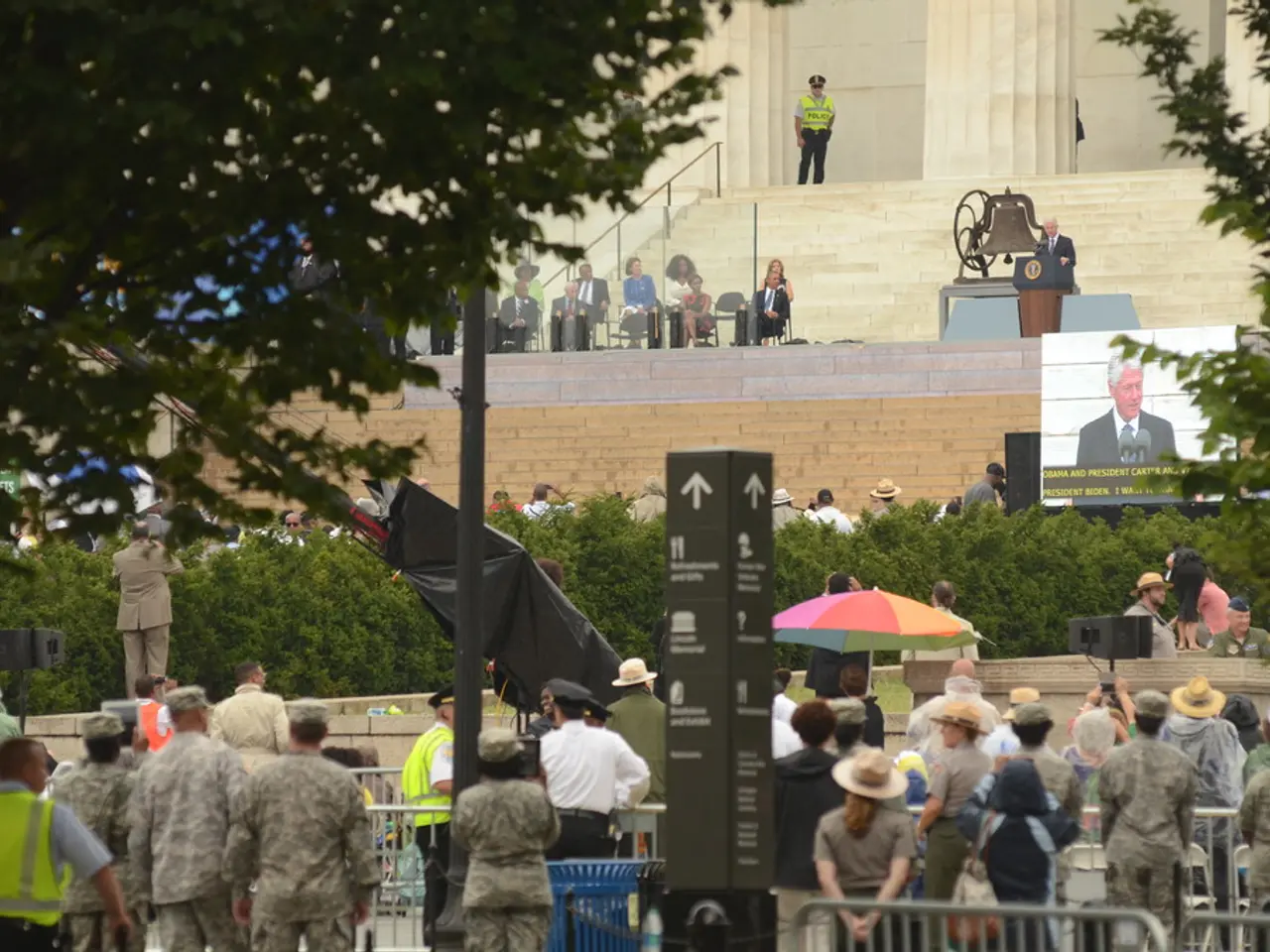India Update: Bilawal Bhutto's Perspective on India's Unusual Border Situation
In a series airing on Al Jazeera, journalist Sreenivasan Jain delves into the evolving relationship between India and Pakistan, exploring the changes from various perspectives. The series features interviews with leading voices from both countries, including Bilawal Bhutto Zardari, the former foreign minister of Pakistan, and Shashi Tharoor, a prominent figure from India.
The focus of the series is on understanding the impact of India's new normal on both nations, particularly in relation to Pakistan's role in harboring extremist groups. The series investigates the ongoing tensions between the two nuclear-armed neighbors, which have intensified following a brief, intense battle in May this year.
One of the key questions addressed in the series is whether Pakistan can legitimately claim that it no longer provides safe harbor to extremist groups that attack India. This issue has been a longstanding security challenge for India, with accusations of Pakistan's support for militants attacking Indian territory persisting since the 1990s.
Recent military strikes by India, such as Operation Sindoor, which targeted terrorist camps inside Pakistan and Pakistan-occupied Kashmir (PoK), suggest that India continues to view Pakistan as a threat. These operations were justified as responses to drone incursions and missile attacks attributed to Pakistan-backed militants. However, Pakistan denies these allegations and claims to combat insurgent groups within its borders.
Despite Pakistan's denials, Indian authorities maintain that Pakistan supports proxy militant groups conducting cross-border terrorism. For example, Pakistan's military has reported conducting counter-insurgency operations against groups it claims are Indian proxies trying to infiltrate its territory from Afghanistan.
The series aims to provide insights into the current state of relations between India and Pakistan, fostering a deeper understanding of the complexities of this longstanding conflict. It also aims to explore the implications of this new state of affairs for both nations, offering a comprehensive examination of the India-Pakistan relationship.
The interview with Bhutto, the son of Pakistan's late Prime Minister Benazir Bhutto and leader of the Pakistan People's Party, is a key part of the series. India has declared a new red line, stating that every act of terror it attributes to Pakistan will be treated as an act of war. This declaration adds another layer of complexity to the ongoing tensions between the two nations.
The series is a first-of-its-kind examination of India's new normal, which Pakistan refers to as a new "abnormal." As the series continues to explore the changes in the relationship between India and Pakistan, it offers valuable insights into this critical geopolitical dynamic. The interview with Bhutto, along with the other interviews and analysis presented in the series, promises to provide a nuanced understanding of the complexities of the India-Pakistan relationship.
The series delves into the impact of India's new normal on its relationship with Pakistan, focusing on the contentious issue of Pakistan's role in harboring extremist groups, a longstanding challenge in the politics of the region. Despite Pakistan's denials, India maintains that Pakistan supports proxy militant groups, escalating tensions and bringing the threat of war to the forefront of general news and war-and-conflicts discourse between these two nuclear-armed neighbors.






